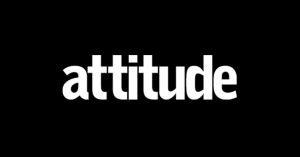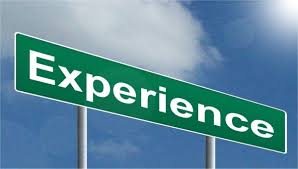Yesterday I was asked by a young woman who is aiming to join the Cambodia National Police, a question that I have been asked many times before by people aspiring to work in policing, risk or investigation related fields, The woman asked me, “What are the key attributes of being an investigator. I had to think about it for minute. So I decided to write down what I think it means to be an Investigator.
Any person who makes inquiries to determine the true facts of a situation assumes the role of an investigator. However, this alone, will not qualify you as an investigator. To appreciate the role of the investigator, it is necessary to consider both the definition and the aim of investigation, as a process. The investigator is the person charged with the responsibility of conducting an investigation into a particular crime or event. Thus, the definition of investigation specifies both the function and the aim of the investigator.
An investigation is a search for the truth, in the interests of justice and in accordance with the specifications of the law.
Mere ability to ask questions or to analyse facts does not make a person an investigator. To succeed in this role s/he must possess particular attributes which may distinguish him or her from other people in degree, if not in kind. Basically, these attributes are:-
KNOWLEDGE, INTEGRITY, INITIATIVE, DEDICATION, JUDGEMENT, COURAGE
Together with these personal characteristics, the competent investigator possesses particular qualities in relation to his/her ATTITUDE, EXPERIENCE & DECISION-MAKING ABILITY.
 Attitude – The role of the investigator demands unconditional service and an attitude of dedication amounting almost to a way of life. It is the responsibility of the investigators to provide your company, clients and society with the protection and service which it deserves. The pursuit of these aims must transcend all other considerations. The activities of the investigator attract attention and interest. Reports of crime and disorder through the mass communications media produce public interest. Where the investigators efforts result in solution of crime and subsequent prosecution, the attention of the court is focused on his/her activities and his/her methods. Consequently, s/he acquires a reputation with individuals with whom s/he comes in contact; perhaps with the public generally; certainly with the courts and within his or her own organisation. The investigator’s attitude, therefore, must be such that s/he jealously guards his or her character and reputation in order to preserve confidence in impartiality and integrity. It is important for the investigator to realise that more crime is solved through the application of honest effort than by the inspiration of geniuses. In this regard, a second-class man with a first-class attitude will always excel a first-class man with a second-class attitude.
Attitude – The role of the investigator demands unconditional service and an attitude of dedication amounting almost to a way of life. It is the responsibility of the investigators to provide your company, clients and society with the protection and service which it deserves. The pursuit of these aims must transcend all other considerations. The activities of the investigator attract attention and interest. Reports of crime and disorder through the mass communications media produce public interest. Where the investigators efforts result in solution of crime and subsequent prosecution, the attention of the court is focused on his/her activities and his/her methods. Consequently, s/he acquires a reputation with individuals with whom s/he comes in contact; perhaps with the public generally; certainly with the courts and within his or her own organisation. The investigator’s attitude, therefore, must be such that s/he jealously guards his or her character and reputation in order to preserve confidence in impartiality and integrity. It is important for the investigator to realise that more crime is solved through the application of honest effort than by the inspiration of geniuses. In this regard, a second-class man with a first-class attitude will always excel a first-class man with a second-class attitude.
 Experience – It is only by the application of acquired knowledge and vocational skills that an investigator can achieve the maximum degree of operational efficiency. In the process, s/he acquires a singular qualification for which there is no effective substitute. That qualification is experience. It is not experience alone that produces efficiency, but the ability of the individual to profit from the experiences to which s/he has been exposed. It is profitable to benefit from the experiences of others and, in this regard, reference to publications of many kinds bearing on the law, crime investigation and investigational techniques can be of considerable value. Knowledge of the law, policy and procedures is essential to the investigator and increased knowledge facilitates the improvement of methods and results. Every opportunity should be taken to broaden one’s experience through increased knowledge. The experienced investigator has an understanding of human nature. Since the investigator encounters a complete cross-section of society, it is vital that s/he should know, not only how to conduct himself/herself in various situations and environments, but also how persons from different classes of society are likely to react in various circumstances. The investigator should take every opportunity to enlarge his or her understanding of human nature. Experience indicates the value of preparation. The experienced investigator, embarking upon a planned investigation, makes adequate preparations to ensure the successful outcome of the inquiry. S/he will have considered the law on the matter, the background of the individuals involved, the value of official records, the advice s/he may need from experts or the assistance from technicians and the nature of the equipment or facilities s/he may require. Experience teaches that the difference between success and failure is often the difference between preparation and the lack of it.
Experience – It is only by the application of acquired knowledge and vocational skills that an investigator can achieve the maximum degree of operational efficiency. In the process, s/he acquires a singular qualification for which there is no effective substitute. That qualification is experience. It is not experience alone that produces efficiency, but the ability of the individual to profit from the experiences to which s/he has been exposed. It is profitable to benefit from the experiences of others and, in this regard, reference to publications of many kinds bearing on the law, crime investigation and investigational techniques can be of considerable value. Knowledge of the law, policy and procedures is essential to the investigator and increased knowledge facilitates the improvement of methods and results. Every opportunity should be taken to broaden one’s experience through increased knowledge. The experienced investigator has an understanding of human nature. Since the investigator encounters a complete cross-section of society, it is vital that s/he should know, not only how to conduct himself/herself in various situations and environments, but also how persons from different classes of society are likely to react in various circumstances. The investigator should take every opportunity to enlarge his or her understanding of human nature. Experience indicates the value of preparation. The experienced investigator, embarking upon a planned investigation, makes adequate preparations to ensure the successful outcome of the inquiry. S/he will have considered the law on the matter, the background of the individuals involved, the value of official records, the advice s/he may need from experts or the assistance from technicians and the nature of the equipment or facilities s/he may require. Experience teaches that the difference between success and failure is often the difference between preparation and the lack of it.
 Decision making ability – Since the investigator is a fact-finder, s/he must resist the temptation to form rash judgements and must disabuse his or her mind of all prejudices in making decisions. The prospects of success depend largely on the ability to maintain objectivity in making decisions. Investigators are required constantly to evaluate situations, consider evidence, formulate theories, analyse facts and reach conclusions. The decision arrived at, depends on the investigator’s judgement of the situation and ability to arrive at the decision objectively.It is wise to remember that we can all be wrong in our opinions, but we cannot afford to be wrong in our facts. If you don’t understand a situation, or any aspect of it, don’t pretend that you do. Seek enlightenment at the appropriate time. Unless you understand the basic facts of a situation, any judgement at which you arrive is likely to be based on false assumptions and, probably, will be incorrect.
Decision making ability – Since the investigator is a fact-finder, s/he must resist the temptation to form rash judgements and must disabuse his or her mind of all prejudices in making decisions. The prospects of success depend largely on the ability to maintain objectivity in making decisions. Investigators are required constantly to evaluate situations, consider evidence, formulate theories, analyse facts and reach conclusions. The decision arrived at, depends on the investigator’s judgement of the situation and ability to arrive at the decision objectively.It is wise to remember that we can all be wrong in our opinions, but we cannot afford to be wrong in our facts. If you don’t understand a situation, or any aspect of it, don’t pretend that you do. Seek enlightenment at the appropriate time. Unless you understand the basic facts of a situation, any judgement at which you arrive is likely to be based on false assumptions and, probably, will be incorrect.
Conduct – It is investigators responsibility to deliver high quality service to their internal and external customers. However, it is the responsibility of managers to support, coach and reward personnel thereby maximising the likelihood of them delivering excellent service. Inevitably, an investigator is judged in terms of his/her professionalism. S/he must be alert to the desirability of promoting the standing of their organisation by the projection of an image. The standards of an organisation can be judged by the ethical conduct of its members. Just one thoughtless act can destroy the image of a organisation and undermine public confidence in its reputation.